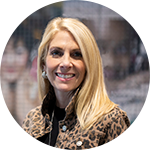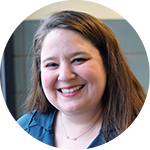Why should you attend?
You’ve heard about MAP® Reading Fluency™, but what’s it really like? Get the facts from someone who’s implemented this solution across their schools. Early childhood literacy expert Dr. Lynne Kulich sat down with Stephanie Cardella, executive director for curriculum, instruction, and assessment at Distinctive Schools, to discuss how MAP Reading Fluency helps preserve valuable instructional time, inspires and excites classroom teachers, and supports readers at every level.
Who should watch?
- School leaders
- District leaders
- Teacher leaders
What will you learn?
- Best practices for implementation
- How NWEA® developed MAP Reading Fluency to provide a valid benchmark and progress monitoring tool that provides quick, objective results and actionable data for all readers, saving teachers time
- How this adaptive, interactive, comprehensive early literacy assessment differs from traditional oral fluency assessments
- How MAP Reading Fluency helps educators assess and respond to the needs of early learners—in English and Spanish
- Ways to change conversations about reading assessments and how best to support early readers
Save valuable instructional time while starting early readers on the right track. Download our webinar to learn how.

Prior to joining NWEA, Dr. Lynne Kulich worked as a professor, teacher, data coach, and curriculum and instruction director. She holds a doctoral degree in curriculum and instruction, a master’s degree in elementary education, and a bachelor’s degree in foreign language education. Lynne is excited to connect with fellow educators and share her passion for early childhood literacy.

Stephanie Cardella designs and monitors teaching and learning experiences in Chicago and Detroit for Distinctive Schools. She has a wealth of experience as an elementary teacher and director in literacy, school improvement, and innovation, specializing in curriculum design, strategic planning, MTSS, differentiation, student-centered personalized learning, and ESL and dual language programming. She holds a bachelor’s degree in elementary education and master’s degrees in language and literacy and educational leadership.
